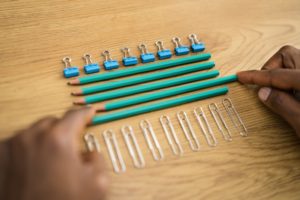Obsessive-compulsive disorder (OCD) is a commonly misunderstood mental health illness. Contrary to popular belief, it is not synonymous with being a “neat freak” or perfectionist. Instead, it’s a highly distressing psychological disorder that can significantly impair multiple aspects of daily life, including work, school, family, and relationships. If you know someone with OCD, show your love and support with these tips.
The first step is to stop using the phrase, “I’m so OCD” about this or that. You may not realize it, but speaking this way makes light of the impact obsessive-compulsive disorder has on those who suffer from it. Then, educate yourself on the two main components of OCD:

Sometimes, it may seem helpful to accommodate obsessions and compulsions by assisting with repetitive behaviors or even performing them alongside your loved one. While your goal may be to provide comfort, this only normalizes the behavior and negatively impacts treatment.
To recover from OCD, your loved one must learn to break the cycle of obsessive thoughts that promote compulsive behaviors. This doesn’t mean you should get irritated or tell your loved one to “just stop.” Instead, patiently encourage more healthy, less compulsive behaviors.
As with other mental illnesses, OCD cannot be conquered through sheer force of will. If your loved one resists getting help, provide your emotional support and suggest that they research OCD themselves and look into getting diagnosed.
Once your loved one begins treatment, you’re bound to start seeing improvements in their behavior before they do. Be sure to point out this progress and express how proud you are. There may be frustrations and setbacks along the way, which makes your support and understanding crucial for making a full recovery.
Your loved one may need a combination of treatments to help them recover from OCD. Here are some options:
If you’re interested in trying Deep TMS to treat OCD, BrainsWay has the resources you need. BrainsWay is a global leader in advancing neurostimulation treatments for mental health disorders. Since its proprietary Deep TMS platform technology was introduced in 2013, this company has improved the health and transformed the lives of countless patients. In addition to safely treating OCD, Deep TMS is FDA-cleared to treat major depressive disorder and smoking addiction. The technology is backed by independent studies demonstrating its clinical effectiveness.
For more information about Deep TMS, feel free to explore our extensive online knowledge center or use our website to find a provider near you.